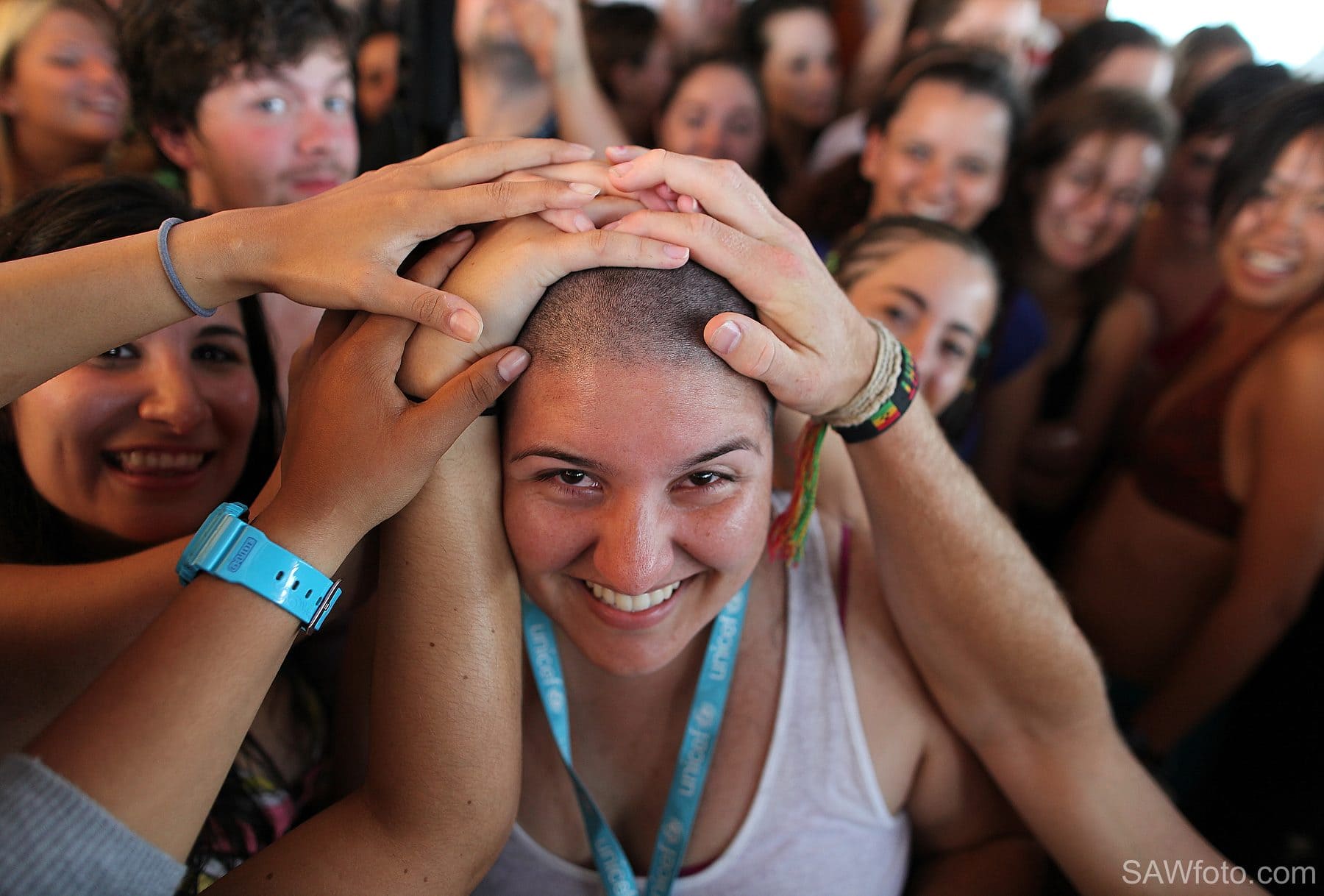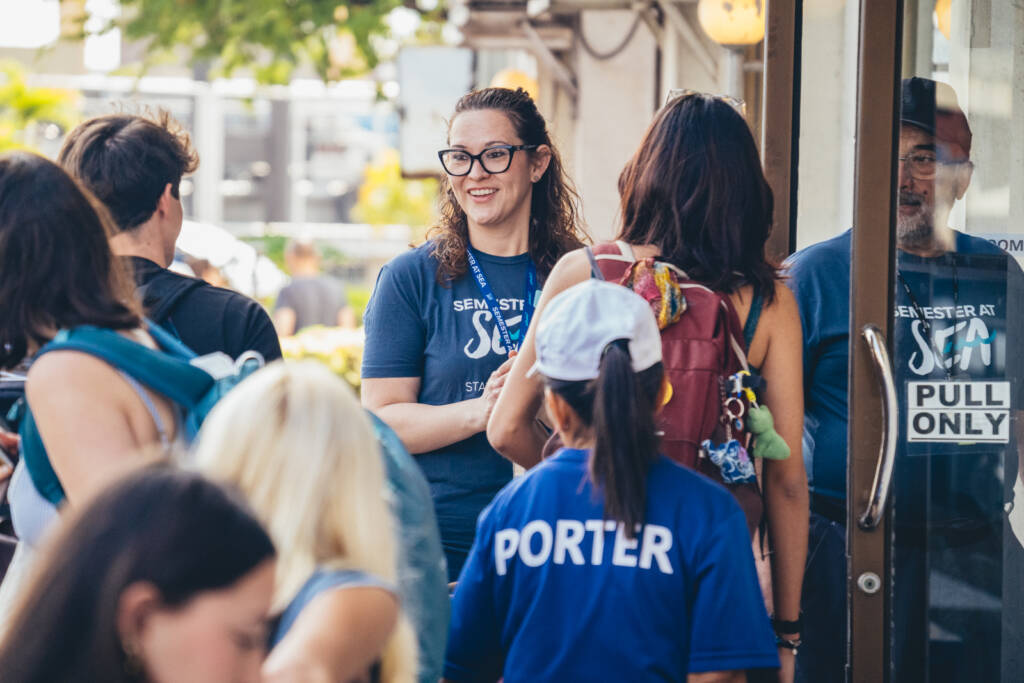 By: Catharine Coplin, Communications Team Work-Study Student
By: Catharine Coplin, Communications Team Work-Study Student
Looking around the ship, I can’t help but notice the way the 180¬∞ we’ve traveled around the world parallels the 180¬∞ turn that many students have taken in their personal lives. Every day, we are becoming more globalized, stepping away from Western paradigms and exploring new ideas of living. Our teachings and experiences have helped us redefine what’s essential (superfluous objects vs. necessities) what’s beautiful (Ghanaian children with shaved heads vs. Neptune day girls) and what’s important (material objects vs. human relationships).
In my own experiences in Africa, I especially questioned the last of these things: what is important in life? Morocco and Ghana gave me the answers.
1. Faith. In Morocco and Ghana, the importance of faith is as visibly evident as the Statue of Liberty. Mosques stand at the center of every single Moroccan town, and cities funnel most of their money into building them. In Ghana, biblical signage lines every street, taxi, restaurant, and school building, proclaiming firm faith, trust, and thankfulness to Jesus. Despite their religious differences, both Moroccans and Ghanaians value their spiritual relationships more than any materialistic object in the world, and trust God to provide for them in every situation.
2. Food. In Morocco, there’s trash absolutely EVERYWHERE, but I never saw a piece of bread on the ground. Why? At 1 dirham a loaf, bread is the key to most peoples’ survival, the one and only food in their food pyramid, so they literally value it with their lives. In Ghana, our host families took our plates when we finished eating and scraped all the scrapings into a collective pot, which they ate from later. They valued every morsel they had and refused to put anything to waste. On the flip side, they also refused to be greedy, immediately offering to share whatever they did have with everyone around them. Once again proving the value of relationships over material (or even essential) objects. Which brings me to my last point‚Ķ
3. Family. Morocco and Ghana were two extremely loving and collective countries. People greeted each other warmly, referred to each other as “brothers” and “sisters,” talked highly of their wives and children, and shared everything they had openly and freely with one another and with us. If a Moroccan brought food and water to a table or on a train, they shared it with everyone around them. If a Ghanaian child’s mother died during childbirth, another village family took that child in as their own. Observing these two countries really brought to life the notion of “it takes a village to raise a child,” and caused me to question, “Shouldn’t we all treat each other this way in our day-to-day lives? Do Americans really have any idea of what’s important in life?”
After visiting Morocco and Ghana, my concept of ‘what’s important’ completely changed. The superfluous things that were once essential to my American lifestyle (having lots of clothes, an awesomely designed house, a really nice car) just aren’t important anymore, and I think a lot of SASers are beginning to feel the same way. Looking forward to India, I’m interested to see how much people will continue to grow and how different we will all be at the end of this experience. All I know is that however we change, it will be a change for the better, and I can’t wait to see what other insights I will gain throughout this journey.


